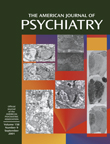It is sometimes said that clinicians are more concerned with how to use a medication than how the medication works. I’m not so sure this is true. Few are likely to argue with the position that understanding the pharmacology of a medication can prove useful clinically. How to access this information may be more the issue, because the content of many pharmacology texts can appear onerously complex and obtuse.
Our thanks to Dr. Stahl, who has found a way to breathe life into an area that, for many, seems the sole property of researchers and nonclinicians. His approach is laudable in its simplicity. Make it visual, minimize the text, and integrate clinical and theoretical concepts.
In his text on antipsychotics, Dr. Stahl covers a number of issues related to psychopharmacology as well as schizophrenia. There is, for example, a chapter on the pathophysiology and symptoms of schizophrenia, which includes information regarding neurodevelopment, apoptosis, and neural protection. Another chapter focuses on the cytochrome P450 system and its role in antipsychotic metabolism and drug interactions. Other chapters review different neurotransmitter systems as well as the pharmacological profiles of the “atypical” antipsychotics. Numerous cartoon-like diagrams are used to distinguish antipsychotics and to link receptor binding to both clinical response and side effects. In addition, there is liberal use of tables focusing on issues, mostly clinical, in a succinct and straightforward fashion. Several different topics are addressed, including side effects such as weight gain, dosage tips, and what Dr. Stahl refers to as “clinical pearls.”
The text on antidepressants, which also focuses on the newer agents, follows a similar format. Again, a minimum amount of text is complemented by an extensive array of tables and figures that are refreshingly clear and to the point. Specific to this text is a chapter on combinations and augmentation strategies for so-called difficult patients, addressing a dilemma that clinicians face routinely.
As to the concerns I have about the material presented, first, efforts to translate complex issues into more simplified explanations can be misleading. Such an approach requires that loose ends be tied together or overlooked, when in fact it is exactly these loose ends which remind us that we are dealing with hypotheses. One example of the problem with simplification is the description of the serotonin-dopamine model and antipsychotic atypicality. Dr. Stahl rightfully devotes a chapter to this topic in Psychopharmacology of Antipsychotics. However, the precise role of shared serotonin-dopamine antagonism in the unique clinical features ascribed to the atypical antipsychotics (e.g., fewer extrapyramidal symptoms and improved negative symptoms) remains controversial; other hypotheses (e.g., selective and transient dopamine D2 antagonism) provide alternative and equally compelling arguments.
A second, but perhaps related, concern involves the interpretation of clinical data. To his credit, Dr. Stahl tries to provide clinicians with clear summary statements regarding a number of questions relevant to the efficacy and side effects of the newer antipsychotics and antidepressants. In reality, however, studies frequently cannot be directly compared or results are conflicting; Dr. Stahl’s approach does not permit the reader to fully appreciate these details or the arguments regarding interpretation of the data. References for further reading are periodically provided, but the reader is often given clinical information and recommendations without specific references.
These are not texts for researchers or individuals intent on learning basic pharmacology. Rather, they are best suited for residents and psychiatrists who are actively involved clinically but who also wish to better their understanding of antipsychotics and antidepressants within a conceptual framework based on existing pharmacological theory. Indeed, I sampled groups of residents and clinicians and received ringing endorsements from those who had used the texts. None said they were going to make career changes, but I could have sworn that several had a smug grin on their face when the topic of 5-HT1A autoreceptors came up.

